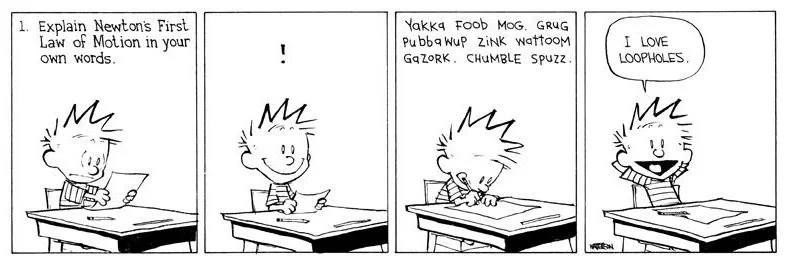Physics is a wonderful choice for your major, as you’ll learn some really amazing things and set yourself up for any number of satisfying careers. But it’s not for everyone, and you’ll want to consider carefully before diving in. As a professor with 20+ years studying, teaching, and doing research in physics, here is my advice.

1. Consider what motivates you
The happiest physics majors are the ones who do it for the simple joy of understanding how the world works. Physics is all about explaining the complex phenemona of the world around us in terms of simple, underlying laws. If you’re the intellectually curious type who finds fulfillment in elegant explanations and deep understanding, then physics is definitely for you! If you are more practically-minded, thinking of the laws of nature as a means to an end, you might be happier elsewhere.
Comparing to engineering makes a good example of what I mean. There is a lot of overlap between upper-division physics and upper-division engineering, but the emphasis is totally different. For example, in both majors you will study Lagrangian mechanics, which is a reformulation of mechanics from the traditional Newtonian approach you studied in high school. But in engineering you’ll focus on using it for increasingly complicated applications, whereas in physics you’ll spend much more time studying the underlying mathematical structure, how it leads the way to quantum mechanics, and how it teaches us about symmetry principles, which govern the modern theory of subatomic particles. Does this sound boring, or exciting?
2. Do you like math?
You don’t have to be “good” at math (whatever that means) to be a physics major, but you do have to like it, because you’re going to be doing a lot of it! At some level, it’s a mystery why mathematics is so incredibly useful for describing our world. But it is. Every successful theory of physics takes mathematical form, and there is no sign of this changing. You just can’t learn the physical principles without expressing them in mathematical form and spending a lot of time manipulating these equations (aka solving all those homework problems) to get a feel for what they mean. So, as much as you might love the idea of explaining the world around you, if you hate the act of doing so (i.e., doing math), you’re just not going to be happy.
3. Career options are fantastic
Physics teaches you how to think, and employers know that. Because physics is so focused on boiling down things to simple laws, with the emphasis less on specific applications (see discussion in section 1 above), the skills are highly transferrable. And of course the training in mathematics, data analysis, and probability is invaluable in the modern world. Physicists are everywhere in all manner of high-powered careers, especially consulting, finance, and data science. You’ll even find physicists working in neighboring industries and other academic fields like biology or eceonomics. And whatever job you want, having gone through a challenging degree like physics will give you a leg up over other candidates.
Survival tip... make friends!
Sadly [at least to us physicists!], a lot of people drop out of the physics major. Expectations are high, and the material is uncompromising. I could write a whole article about how to survive and thrive, but my very best advice is: make friends early, and make friends often. Work on every homework with a group, and hang out together outside of class. You’ll get (and contribute!) great help and feedback every week, and the camaraderie you build will help you stay motivated. If you don’t make friends naturally, work at it. Hopefully your department has “physics club” or similar. Or you could start a community discord server or whatever the hottest app is. Just be social and organize. People will thank you!
Outlook
Two decades after my own undergraduate days, I remember them as a time of intense work and great fun, where together we learned about some of the greatest achievements of humankind. When I see my physicist friends in all walks of life, they have similar reports. Hopefully this article helps you decide if physics is for you. And if it is, I wish you as much happiness as I have found!
I am a physics professor at the University of Arizona and one of the founders of Tutor Terrace. I am passionate about having a positive impact on students’ lives through teaching and mentorship. My career keeps me busy, but I always make room for tutoring because it is so rewarding.




